How To Use Henna For Hair Growth
This natural hair dye can boost your hair growth and give you the hair of your dreams.
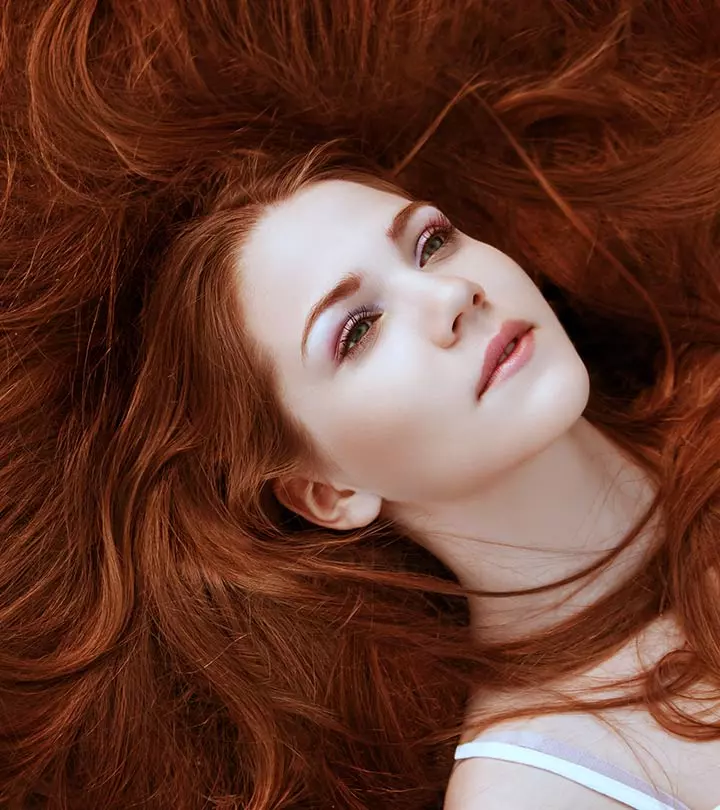
Image: ShutterStock
Hair growth can be a time-consuming and frustrating process. You can encourage faster growth using hair treatments, but the chemicals may result in some degradation and breakage to your hair over time. Therefore, try an alternate remedy of henna for hair growth, a natural, non-toxic, DIY treatment that you can make at home.
Henna is a plant-based dye prepared from the plant Lawsonia inermis. The traditional use of henna for its hair-dyeing capabilities are well-known. However, it has a lot more hair benefits. Henna can and is often used to encourage hair beauty and growth. We have explained how henna can aid hair growth and included 7 easy ways to use it. Keep scrolling to learn more!
 Trivia
Trivia Know Your Ingredient: Henna
Know Your Ingredient: HennaWhat Is It?
Natural, reddish-brown fine dye with an earthy aroma
What Are Its Benefits?
Henna may manage dandruff, balance scalp pH and oil levels, and prevent split ends and hair fall. It may boost hair strength and stimulate hair growth.
Who Can Use It?
Anyone who wishes to dye their hair (especially those with damaged hair and an itchy scalp) can use henna.
How Often?
Use it once every 4-8 weeks.
Caution
Using low-quality henna or overusing it may irritate the skin and damage hair. People with sensitive skin may experience skin discomfort and redness. Henna may interfere with hair treatments like perms and relaxers.

In This Article
What Is Henna?
Henna is a dye obtained from the leaves of the henna tree. The tree is also known as the mignonette tree or the Egyptian privet. Henna has been used for centuries to create body art, dye hair, and medicinal purposes. It is still used by some cultures to adorn their feet and hands with designs in South Asia, Africa, and the Middle East for celebrations like weddings and festivals. The depth of its stain can vary depending on factors such as the quality of the henna, the length of time it is left on, and the individual’s skin or hair type.
Alexandra Graham, a belly dancer and blogger, shared that she was told that dying one’s hair with henna is permanent and irreversible. However, after researching a bit about it, she decided to go ahead with it. Alexandra writes on her blog, “It was scary orange at first. However, henna does take a few days to ‘settle’ and come to its true color (i).” After the color darkened over the next few days, she observes, “I love the way my hair looks now, and when I decide not to continue with the henna, I will just let my hair grow out.”
Henna has a rich history and continues to be a popular and versatile natural herb for hair growth. Check out the benefits of this plant-based dye below.
Key Takeaways
- Since ancient times, henna has been utilized as a natural hair treatment product.
- Henna might balance the pH levels of the scalp, which is beneficial for hair growth.
- By fortifying hair roots and reducing hair breakage, henna may aid in promoting hair growth.
- It may help condition hair, provide gloss and luster, and lessen other scalp irritations like dandruff.
Benefits Of Henna For Hair Growth
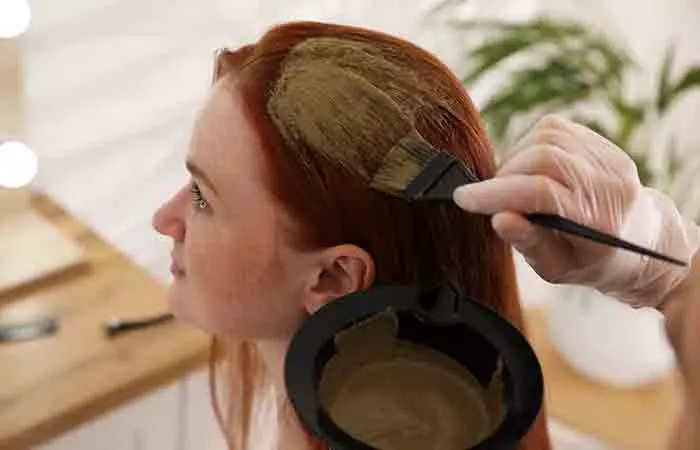
1. Maintains Scalp Health
Henna has anti-inflammatory and antimicrobial properties (1), (2). It can be cooling for the scalp and help maintain scalp health. It inhibits the growth of Malassezia, fungi that cause dandruff (3).
2. Balances Oil Production And pH Levels
Henna not only keeps issues like dandruff at bay but is also an excellent ingredient for balancing oil production and the pH of your scalp
(4). It removes the excess oil from your hair and also restores the normal functioning of the sebaceous glandsi A microscopic gland that opens into hair follicles and releases a waxy substance called sebum to prevent dryness. (4).
3. Promotes Hair Growth And Reduces Hair Fall
A study showed that henna helped reduce hair loss
(5). It also prevents split ends, reduces hair damage, and boosts scalp health. Boosted scalp health, unclogging of pores, and balanced pH levels can put a stop to hair loss and promote healthy hair growth.
4. Repairs And Strengthens Hair
The nutrients in henna help in nourishing your hair while also repairing the damage. Research shows that henna reduces split ends, hair loss, and hair damage, thereby strengthening hair (6). It also helps prevent scabiesi It is a contagious, intensely itchy skin condition caused by a tiny burrowing mite called Sarcoptes scabiei. and scalp acne, keeping the scalp clean.
5. Conditions Hair
Henna is a herbal conditioner that keeps hair moisturized while removing excess sebum. It can be especially beneficial when used in hair packs in combination with other hydrating ingredients. Henna helps minimize issues, such as hair breakage and split ends (6). Regular use of henna may help improve hair texture by smoothing the hair cuticles and reducing frizz.
6. Medicinal
Henna possesses a large range of beneficial properties. It has antioxidant, antimicrobial, antidiabetic, anticancer, anti-inflammatory, antiparasitic, antidermatophytici It refers to the inhibitory activity against a group of fungal infections that affects the skin, hair, and nails. properties, anticancer, antiviral, wound healing, immunomodulatoryi The property of a substance used to modulate the response of the immune system of the body useful in the treatment of autoimmune diseases. , hepatoprotectivei A chemical substance that has the ability to prevent damage to the liver. It is the opposite of hepatotoxicity. , tuberculostatici An antituberculosis or antimicrobial agent that can inhibit the growth of tuberculosis bacilli and Mycobacterium infections. , antifertility, and protein glycation inhibitori It inhibits glycation which is the covalent attachment of sugar to the amino group of proteins or lipids. properties (7).
Using henna for hair offers numerous benefits, but it can also come with some adverse effects. Check out the next section to learn more about them.
Henna For Hair Growth – Side Effects And Precautions
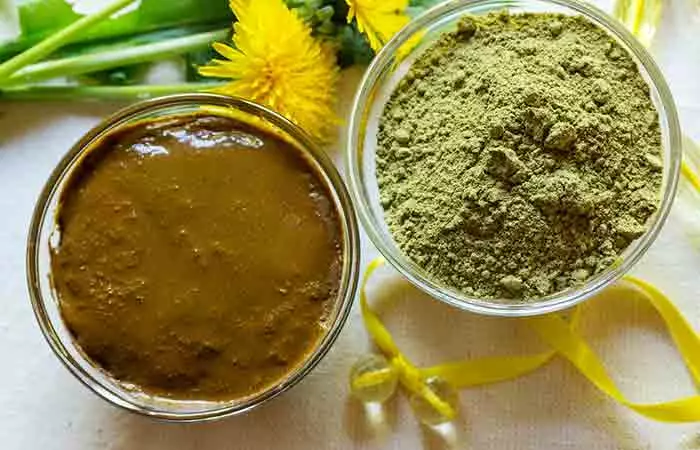
It is crucial to ensure that the henna you are using is 100% organic. This is because most henna powders available on the market include harsh chemicals, such as PPD (Paraphenylenediamine), to improve the color results. These chemicals can cause the following problems:
- Paraphenylenediamine is an allergen that can cause adverse reactions upon contact with skin. You may not have a reaction from the first couple of uses, but the more your skin comes in contact with the chemical, the more likely you are to have an allergic reaction (8).
- The chemicals added to henna powders can also be extremely drying. They may end up overprocessing your hair, causing it to become rough, dry, and unmanageable. This can lead to issues like breakage, bad hair texture, and extremely unmanageable hair.
- If henna comes in contact with your eyes, it can cause redness, irritation, watery eyes, and itching (9). If this happens to you, rinse your eyes with cold water immediately. If problems persist, visit an eye specialist as soon as possible.
 Did You Know?
Did You Know?With this out of the way, take a look at the different ways in which you can use henna to promote hair growth. Keep reading to also learn how long to leave henna on your hair.
How To Prepare Henna For Hair Growth
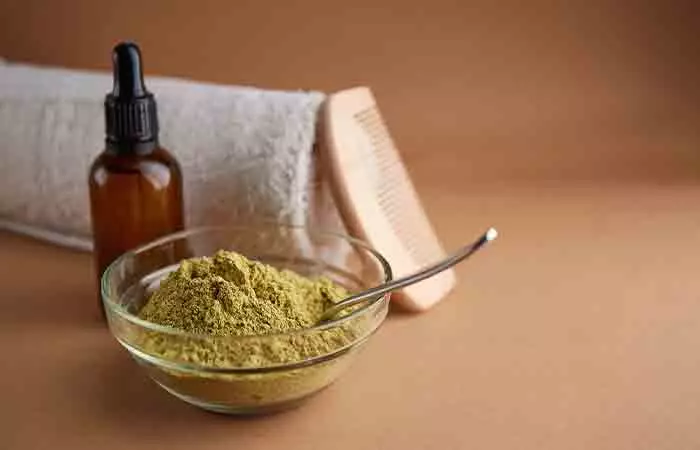
This henna hair pack will not only boost your scalp and hair health, but it will also help color your hair and cover grays. By combining henna with other natural ingredients, you can customize the hair treatment to meet your specific needs. Whether you are looking to add moisture, strengthen your hair, or enhance its color, adjusting the mix can offer more targeted benefits for healthier and more vibrant hair.
In addition to coloring your hair, henna also unclogs your pores, removes excess oil, balances pH levels and strengthens your hair, and provides it with thickness and volume. If you do not want to use henna to dye your hair, do not let it develop overnight and start applying soon after mixing it with water.
You Will Need
- 1/2 cup henna powder
- 1/4 cup warm water
- Gloves
- Coconut oil
- Applicator brush
- Shower cap
Prep Time
12 hours/5 minutes
Processing Time
2-3 hours
Process
- Mix the henna powder and water in a glass bowl until you get a thick, smooth, and spreadable consistency.
- Set this aside for about 12 hours for the color to develop. If you do not want the color to develop, you can start applying the mixture to your hair.
- Apply some coconut oil to your hairline, ears, and neck to keep them protected from the color.
- Throw on some gloves and start applying the mixture to your hair with an applicator brush. Start from the roots and make your way to the tips.
- Wrap each section around the top of your crown as you apply the henna so that you end up with a bun.
- Once all of your hair is covered in the mixture, cover your head with a shower cap and wait for a couple of hours.
- Rinse the henna out of your hair with shampoo. Skip conditioning.
- Let your hair air dry.
How Often?
Once a month.
Henna, by itself, is an excellent ingredient for hair growth. However, using it in combination with other ingredients can improve its efficiency. Here’s a list of seven henna hair treatments that help boost hair growth.
How To Use Henna For Hair Growth
1. Amla Powder And Henna
Amla has high vitamin C, iron, and carotene contents that help stimulate and boost hair growth
(4). The vitamin C helps boost collagen levels, which, in turn, results in faster hair growth (10).
You Will Need
- 1/2 cup henna powder
- 2 tablespoons amla powder
- 1/4 cup warm water
- Gloves
- Coconut oil
- Applicator brush
- Shower cap
Prep Time
12 hours/5 minutes
Processing Time
2-3 hours
Process
- Mix the henna and amla powders with warm water until you get a thick, smooth, and spreadable consistency. You can add more water if the mixture seems too thick.
- Set this aside for about 12 hours for the color to develop. If you do not want the color to go too deep, you can simply start applying the mixture to your hair. Amla powder helps neutralize the warm tones that henna imparts to your hair.
- Apply some coconut oil to your hairline, ears, and neck to keep them protected from the color.
- Throw on some gloves and start applying the mixture to your hair with an applicator brush. Start from the roots and make your way to the tips.
- Wrap each section around the top of your crown as you apply the henna so that you end up with a bun.
- Once all of your hair is covered in the mixture, cover your head with a shower cap and wait for a couple of hours.
- Rinse the henna out of your hair with shampoo. Skip conditioning.
- Let your hair air dry.
How Often?
Once a month.
2. Aloe Vera And Henna
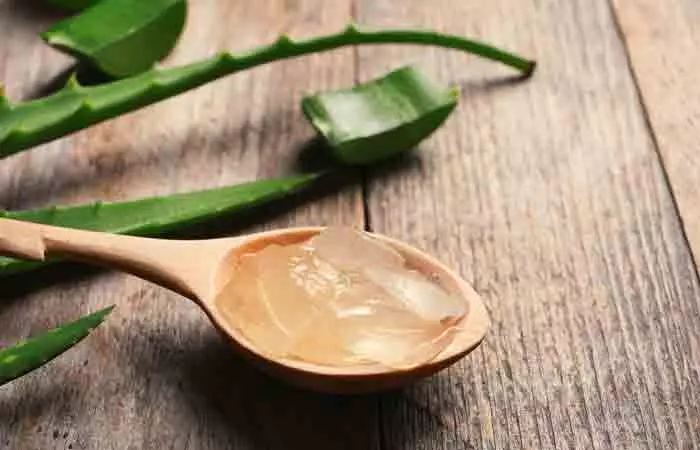
Aloe vera is another ingredient that can help in promoting hair growth (11). In this pack, it helps condition your hair and keeps it from drying out. It also boosts scalp health, fighting off issues like dandruff and scalp irritation/aggravation.
You Will Need
- 1 cup fresh henna leaves
- 1 aloe vera leaf
- Gloves
- Coconut oil
- Applicator brush
- Shower cap
Prep Time
5 minutes
Processing Time
30 minutes
Process
- Wash the aloe vera and henna leaves.
- Using a knife, slice off the thorns that are on the sides of the aloe vera leaf. Chop the leaf into small pieces, with the skin still on.
- Grind the aloe and henna leaves together until you get a smooth green paste.
- Apply some coconut oil to your hairline, ears, and neck to keep them protected from the color.
- Throw on some gloves and start applying the mixture to your hair with an applicator brush. Start from the roots and make your way to the tips.
- Wrap each section around the top of your crown as you apply the henna so that you end up with a bun.
- Once all of your hair is covered in the mixture, cover your head with a shower cap and wait for a couple of hours.
- Rinse the henna out of your hair with shampoo. Skip conditioning.
- Let your hair air dry.
How Often?
Once a month.
3. Coconut Milk And Henna For Hair
This henna and coconut milk hair pack is an excellent deep conditioning treatment. It not only boosts hair growth but also repairs your hair and makes it super manageable. This treatment tackles dryness, prevents split ends, and adds shine to your hair (6).
You Will Need
- 2/3 cup henna powder
- 1 can coconut milk
- 4 tablespoons coconut oil (optional)
- Gloves
- Applicator brush
- Shower cap
Prep Time
12 hours/5 minutes
Processing Time
2-3 hours
Process
- Mix henna powder and coconut milk in a glass bowl until you get a smooth mixture.
- Set the mixture aside for about 12 hours so that the color develops. If you do not want to color your hair, you can skip this step.
- Optionally, you can add four tablespoons of coconut oil to the mixture once you’ve let the color develop. But, keep in mind that this is only for dry hair types and that it inhibits the color from transferring onto your hair.
- Apply some coconut oil to your hairline, ears, and neck to keep them protected from the color.
- Throw on some gloves and start applying the mixture to your hair with an applicator brush. Start from the roots and make your way to the tips.
- Wrap each section around the top of your crown as you apply the henna so that you end up with a bun.
- Once all of your hair is covered in the mixture, cover your head with a shower cap and wait for a couple of hours.
- Rinse the henna out of your hair with shampoo. Skip conditioning.
- Let the hair dry out.
How Often?
Once a month.
4. Beetroot And Henna For Hair
Beetroot contains folate, which is important to prevent hair fall and graying (12). It has antioxidant and anti- inflammatory properties (13). These may help keep the scalp clean and reduce oxidative stress. It nourishes your follicles while also boosting the color that is being imparted to your hair from the henna.
You Will Need
- 1 cup grated beetroot
- 1 cup henna powder
- 2 cups water
- Coconut oil
- Gloves
- Applicator brush
- Shower cap
Prep Time
20 minutes + 2 hours
Processing Time
2-3 hours
Process
- Add the grated beetroot to water and bring it to a boil in a pot. Once the water is boiling, lower the heat and let the water reduce to half of its quantity. Set aside to cool.
- Once cooled, blend the grated beetroot with water to get beetroot puree. Add a cup of henna powder to this and mix well.
- Set this mixture aside for at least 2 hours to let it develop.
- Apply some coconut oil to your hairline, ears, and neck to keep them protected from the color.
- Throw on some gloves and start applying the mixture to your hair with an applicator brush. Start from the roots and make your way to the tips.
- Wrap each section around the top of your crown as you apply the henna so that you end up with a bun.
- Once all of your hair is covered in the mixture, cover your head with a shower cap and wait for a couple of hours.
- Rinse the henna out of your hair with shampoo. Skip conditioning.
- Let your hair air dry.
How Often?
Once a month.
5. Egg And Henna For Hair
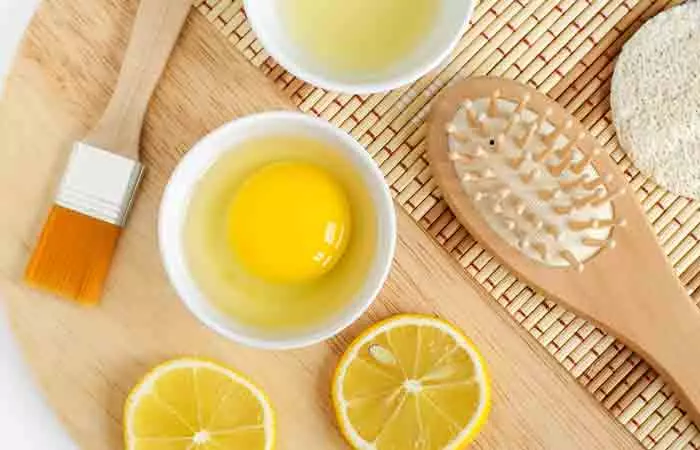
This henna hair mask also doubles as a protein treatment. Eggs contain peptides that can boost hair growth (14). The lemon juice nourishes your scalp with vitamin C, which, in turn, gives it a collagen boost, promoting faster hair growth.
You Will Need
- 1 egg
- 1 cup henna
- 1 cup water
- 1/2 cup lemon juice
- Coconut oil
- Gloves
- Applicator brush
- Shower cap
Prep Time
1 hour + 10 minutes
Processing Time
2 hours
Process
- Mix a cup of henna powder, an egg, and a cup of water in a glass bowl until you get a consistent mixture. Let this develop for about an hour.
- After an hour has passed, add half a cup of lemon juice to the mixture and mix well.
- Apply some coconut oil to your hairline, ears, and neck to keep them protected from the color.
- Throw on some gloves and start applying the mixture to your hair with an applicator brush. Start from the roots and make your way to the tips.
- Wrap each section around the top of your crown as you apply the henna so that you end up with a bun.
- Once all of your hair is covered in the mixture, cover your head with a shower cap and wait for a couple of hours.
- Rinse the henna out of your hair with shampoo. Skip conditioning.
- Let your hair air dry.
How Often?
Once a month.
6. Curd And Henna For Hair
Curd conditions the hair and makes it soft and healthy (15). It contains probiotic bacteria that maintain scalp health. It also helps reduce and prevent dandruff.
You Will Need
• 1/4 cup henna
• 2/3 cup curd
• Heat pack
• Coconut oil
• Gloves
• Applicator brush
• Shower cap
Prep Time
1 hour
Processing Time
2 hours
Process
1. Mix a quarter cup of henna powder and two-thirds of a cup of curd in a glass bowl until you get a consistent mixture. Let this develop for about an hour.
2. Wrap a heat pack around the bowl for added heat while the mixture develops.
3. After the hour has passed, apply some coconut oil to your hairline, ears, and neck to keep them protected from the color.
4. Throw on some gloves and start applying the mixture to your hair with an applicator brush. Start from the roots and make your way to the tips.
5. Wrap each section around the top of your crown as you apply the henna so that you end up with a bun.
6. Once all of your hair is covered in the mixture, cover your head with a shower cap and wait for a couple of hours.
7. Rinse the henna out of your hair with shampoo. Skip conditioning.
8. Let your hair air dry.
How Often?
Once a month.
7. Castor Oil And Henna For Hair
Castor oil is a well-known hair conditioner, trusted by many as evidenced by the plethora of anecdotal backing. It is known to help preserve hair endings and prevent hair damage (6). It can help prevent hair loss and dandruff and enhance your hair’s natural pigmentation. It also antifungal and anti-inflammatory (16).
You Will Need
• 2 cups henna leaves
• 500 ml castor oil
• Gloves
• Shower cap
• Hot towel
Prep Time
2 minutes
Processing Time
1 hour
Process
- Combine the ingredients in a glass jar and shake it well.
- Take about 2 tablespoons of the mixture and heat it for a couple of seconds until it is slightly warm. Store the rest away in a cool, dark place for later use.
- Wear your gloves and start massaging the mixture into your scalp. Slowly work it through the length of your hair.
- Massage your scalp for about 15 minutes and leave the oil in for an additional 45 minutes.
- Cover your hair with a shower cap while you wait. Wrap a hot towel around the shower cap for added heat.
- Shampoo your hair and condition.
- Let your hair air dry.
How Often?
1-2 times a week.
- Why buy expensive hair treatment products when you can make your own? These henna treatments can not only aid faster hair growth but also give you healthy hair with vibrant color.
This is how you use henna to promote hair growth. Now can you make the process smoother? Better? Let’s learn some expert tips to elevate your henna hair care routine!
Expert Tips For Henna Application On Hair
Here are a few expert tips to keep in mind before applying henna.
- Choose pure, organic henna for the best quality and color results.
- Avoid using metal bowls or utensils when mixing henna to prevent reactions with the dye.
- For deeper color, mix the henna paste with something acidic like lemon juice or ACV and let it sit for a few hours before applying it.
- Keep the henna wet on your hair. Cover it with a cap to preserve moisture and enhance color.
- Avoid shampooing for the next 48 hours to let the color oxidize and deepen.
Infographic: 3 Easy Ways To Use Henna For Hair Growth
A chemical-free option for dyeing your hair, henna can be your number one answer to covering those gray strands without compromising your hair quality. Henna carries more than just its hair-dyeing abilities, it can be used to increase hair growth as well as impart shine. Check out the infographic below to learn the various ways you can use henna for hair growth.
Some thing wrong with infographic shortcode. please verify shortcode syntax
Now that you have read and understood how to make and use henna for hair growth, you can try them at home too. Henna preparation is a time-consuming process that requires patience. Applying the paste and thoroughly wiping it off can be done with a little help from a friend or relative. You will see amazing improvements if you use them at least once a month. Henna has a lot of benefits for your hair, and it is included in a lot of hair care products like shampoos, conditioners, and masks. Make sure the henna you buy is organic or pure.
Frequently Asked Questions
Which henna is best for hair growth?
Use organic red henna. Commercial black henna may contain synthetic ingredients like PPD, which can leave your hair rough and cause side effects like itchiness, sore eyes, redness, and blisters.
Should I oil my hair after applying henna?
Yes. You may oil your hair after you have washed the henna off. However, avoid shampooing as it may make your hair rough and dry.
Does henna work better on wet or dry hair?
You can apply henna to both damp and dry hair. Some believe henna is easier to apply on dry hair, while others believe wet hair absorbs henna easier. It all depends on your personal preference.
Henna is a great natural ingredient for promoting hair health and appearance. This video shows how to use it on natural hair for amazing results. Watch it now!
Personal Experience: Source
StyleCraze's articles are interwoven with authentic personal narratives that provide depth and resonance to our content. Below are the sources of the personal accounts referenced in this article.
i. Henna: My hair dying experiencehttps://thebellydanceblog.wordpress.com/2014/02/03/henna-my-hair-dying-experience/
References
Articles on StyleCraze are backed by verified information from peer-reviewed and academic research papers, reputed organizations, research institutions, and medical associations to ensure accuracy and relevance. Read our editorial policy to learn more.
- From Body Art to Anticancer Activities: Perspectives on Medicinal Properties of Henna, Current Drug Targets, US National Library Of Medicine, National Institute Of Health.
https://pubmed.ncbi.nlm.nih.gov/23140289/ - In-vitro Antimicrobial Activity of Lawsonia Inermis Linn (Henna). A Pilot Study on the Omani Henna, Saudi Medical Journal, US National Library Of Medicine, National Institute Of Health.
https://pubmed.ncbi.nlm.nih.gov/15756356/ - In vitro study of the effects of Henna extracts (Lawsonia inermis) on Malassezia species, Jundishapur Journal of Microbiology, ResearchGate.
https://www.researchgate.net/publication/44003899_In_vitro_study_of_the_effects_of_Henna_extracts_Lawsonia_inermis_on_Malassezia_species - Synthesis And Evaluation Of Herbal Based Hair Dye, The Open Dermatology Journal,
https://benthamopen.com/contents/pdf/TODJ/TODJ-12-90.pdf - Comparison of the efficacy of topical lawsonia inermis and topical minoxidil in the treatment of telogen effluvium, Semantic Scholar.
https://www.semanticscholar.org/paper/Comparison-of-the-efficacy-of-topical-lawsonia-and-Sadeghinia-Sadeghinia/a068381f00677c4e9d8ddd2285c76a3710c584a1?p2df - Ethnopharmacological Survey Of Home Remedies Used For Treatment Of Hair And Scalp And Their Methods Of Preparation In The West Bank-Palestine, BMC Complementary And Alternative Medicine, US National Library Of Medicine, National Institute Of Health.
https://www.ncbi.nlm.nih.gov/pmc/articles/PMC5499037/ - Lawsonia inermis Linnaeus: A Phytopharmacological Review, Semantic Scholar.
https://www.semanticscholar.org/paper/LAWSONIA-INERMIS-LINNAEUS%3A-A-PHYTOPHARMACOLOGICAL-Chaudhary-Goyal/b8a2fa00dd800f79cbffc41d27763cb1b3215d37 - Determination of para-Phenylenediamine (PPD) in Henna in the United Arab Emirates, International Journal Of Environmental Research And Public Health, US National Library Of Medicine, National Institute Of Health.
https://www.ncbi.nlm.nih.gov/pmc/articles/PMC2872353/ - An Allergic Reaction to Henna Used in a Traditional Painting Ceremony, The American Journal of Tropical Medicine and Hygiene, US National Library Of Medicine, National Institute Of Health.
https://www.ncbi.nlm.nih.gov/pmc/articles/PMC4856623/ - The Role Of Vitamin C In Skin Health, MDPI Nutrients, US National Library Of Medicine, National Institute Of Health.
https://www.ncbi.nlm.nih.gov/pmc/articles/PMC5579659/ - Invivo Hair Growth Activity Of Herbal Formulations, International Journal Of Pharmacology, Science Alert.
https://scialert.net/fulltext/?doi=ijp.2010.53.57 - Nutrition of women with hair loss problem during the period of menopause, Menopause Review, US National Library Of Medicine, National Institute Of Health.
https://www.ncbi.nlm.nih.gov/pmc/articles/PMC4828511/ - The Potential Benefits of Red Beetroot Supplementation in Health and Disease, MDPI Nutrients, US National Library Of Medicine, National Institute Of Health.
https://www.ncbi.nlm.nih.gov/pmc/articles/PMC4425174/ - Naturally Occurring Hair Growth Peptide: Water-Soluble Chicken Egg Yolk Peptides Stimulate Hair Growth Through Induction of Vascular Endothelial Growth Factor Production, Journal of Medicinal Food, US National Library Of Medicine, National Institute Of Health.
https://pubmed.ncbi.nlm.nih.gov/29583066/ - Probiotic Bacteria Induce a ‘Glow of Health’
https://www.ncbi.nlm.nih.gov/pmc/articles/PMC3547054/ - Physiological and Medicinal Properties of Castor Oil, Food Oils, ResearchGate.
https://www.researchgate.net/publication/327345451_Physiological_and_Medicinal_Properties_of_Castor_Oil
Read full bio of Madison Dufour
- Madison Dufour is a licensed barber and cosmetologist with a decade of experience. She is also an entrepreneur who runs several hair businesses, including MadisonD Barbering and The Exquisite Find Hair Blog. She received her training from Xenon Academy of Cosmetology and aims to help people feel confident from the inside and beautiful on the outside through proper hair care.
 Madison Dufour is a licensed barber and cosmetologist with a decade of experience. She is also an entrepreneur who runs several hair businesses, including MadisonD Barbering and The Exquisite Find Hair Blog. She received her training from Xenon Academy of Cosmetology and aims to help people feel confident from the inside and beautiful on the outside through proper hair care.
Madison Dufour is a licensed barber and cosmetologist with a decade of experience. She is also an entrepreneur who runs several hair businesses, including MadisonD Barbering and The Exquisite Find Hair Blog. She received her training from Xenon Academy of Cosmetology and aims to help people feel confident from the inside and beautiful on the outside through proper hair care.
Read full bio of Anjali Sayee
Read full bio of Ramona Sinha
Read full bio of Swathi E






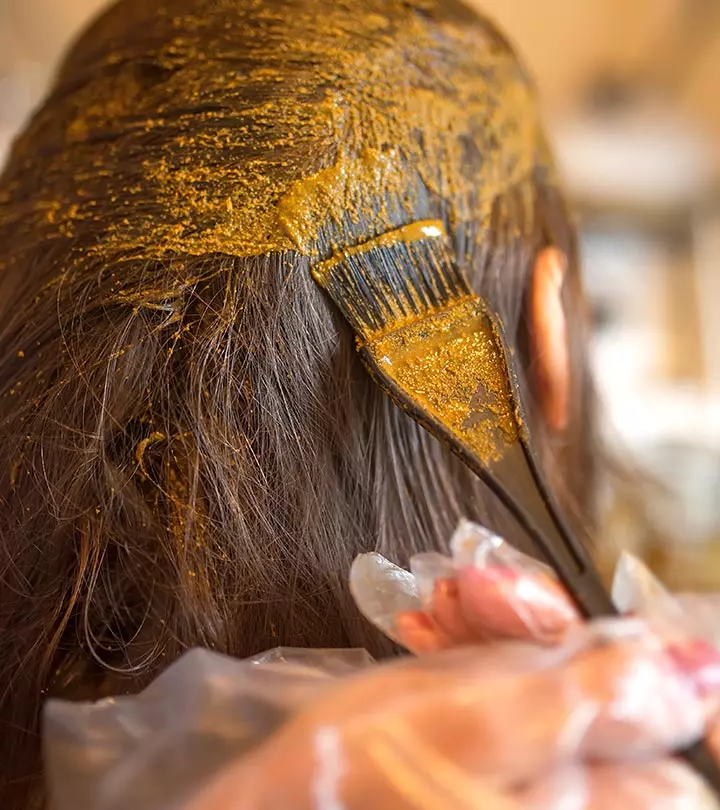
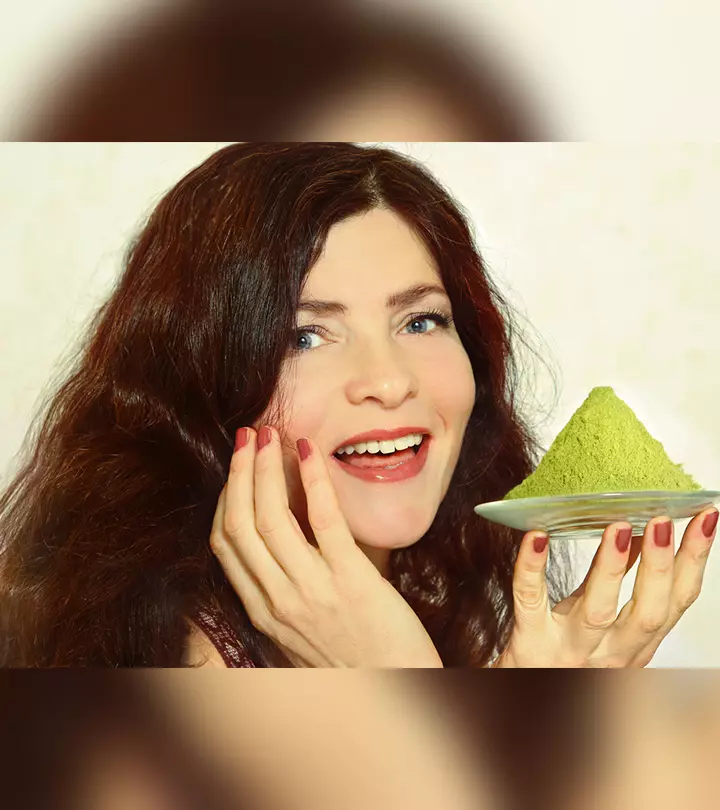

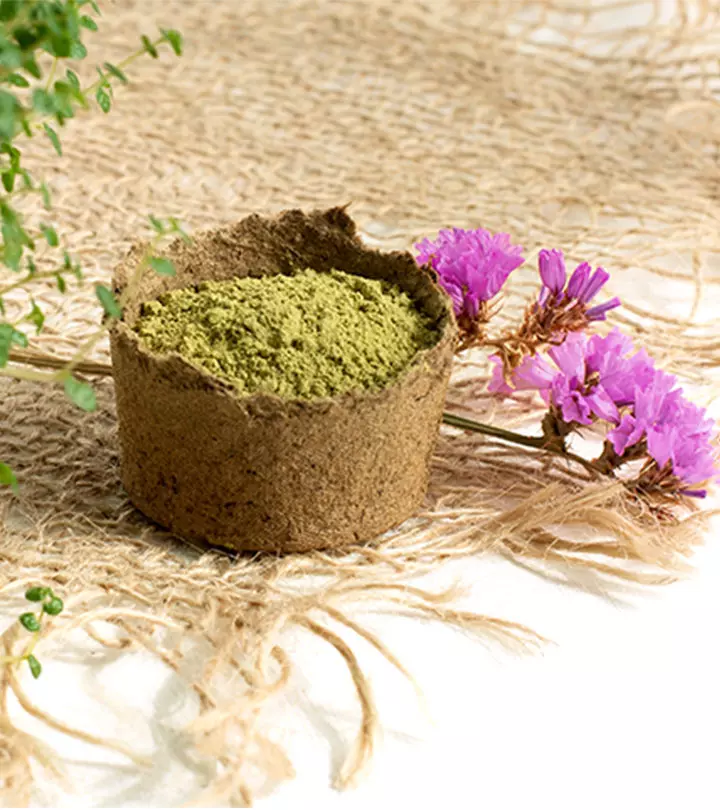
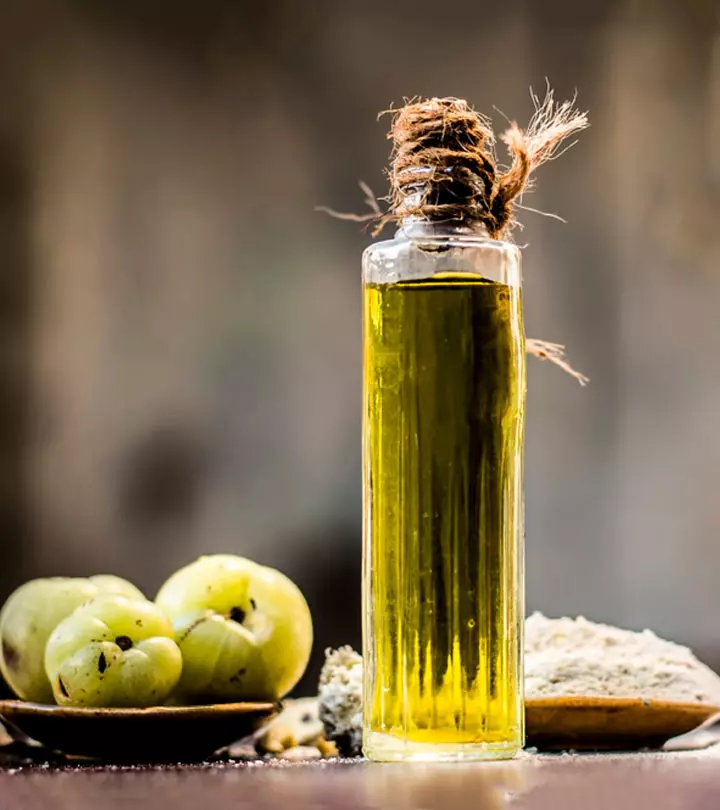
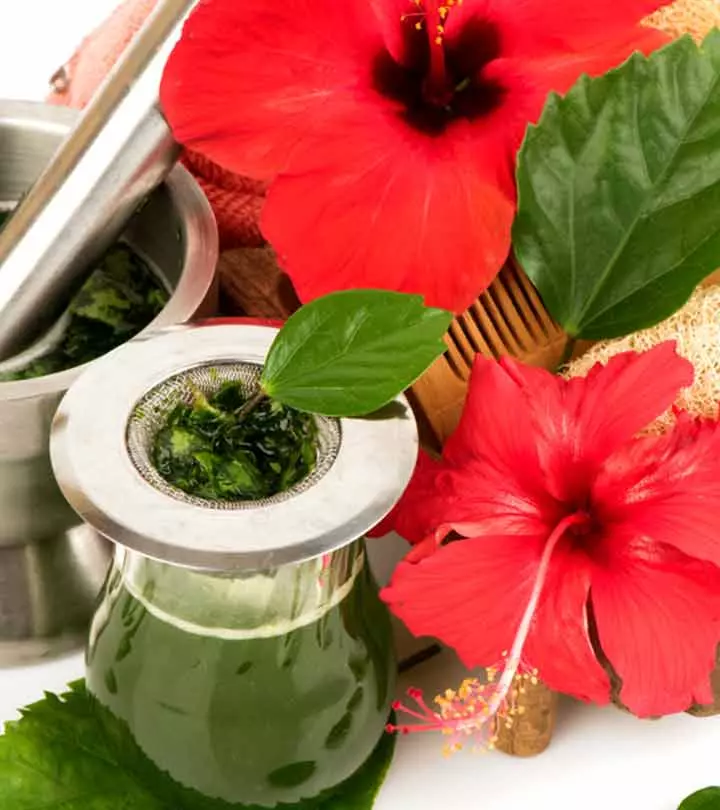
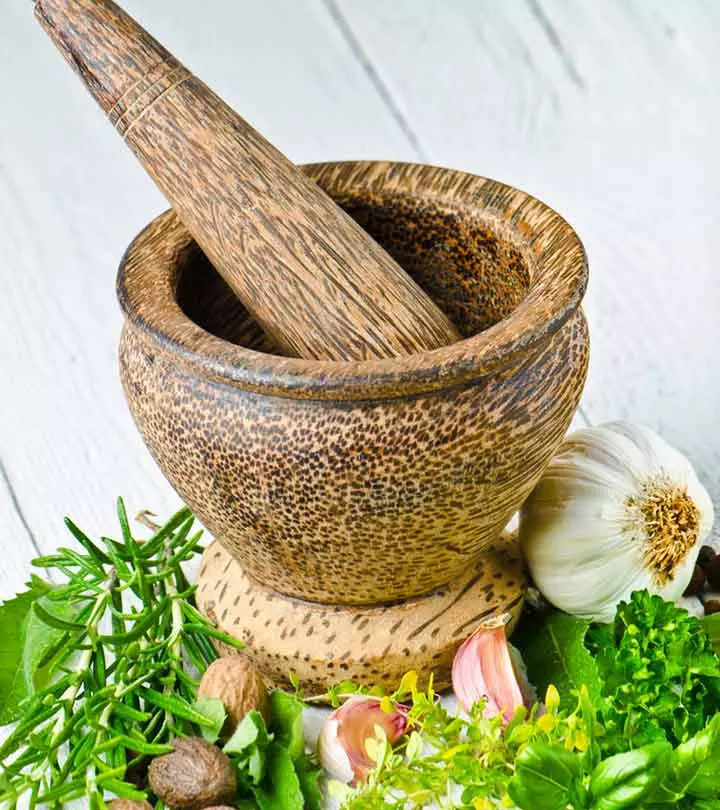
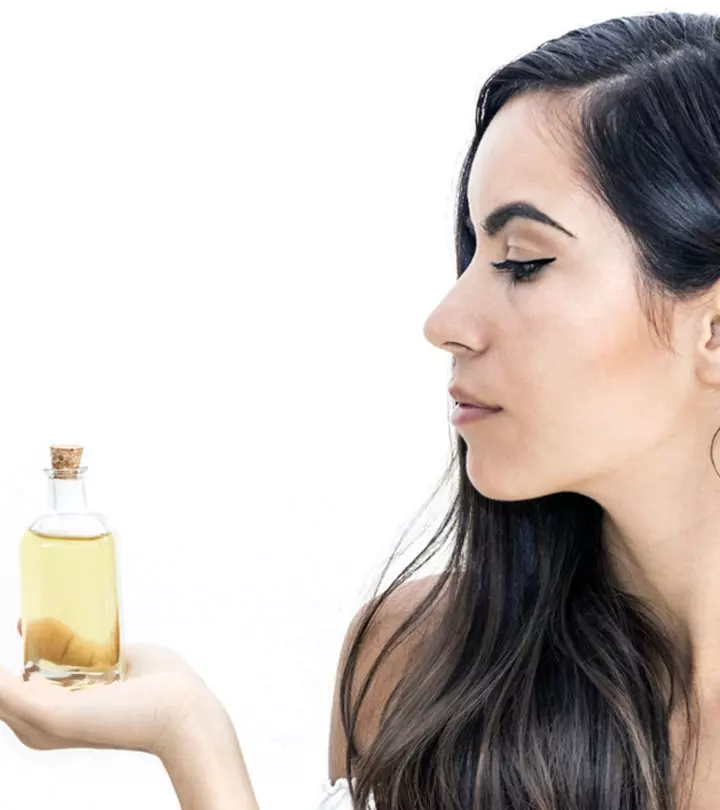

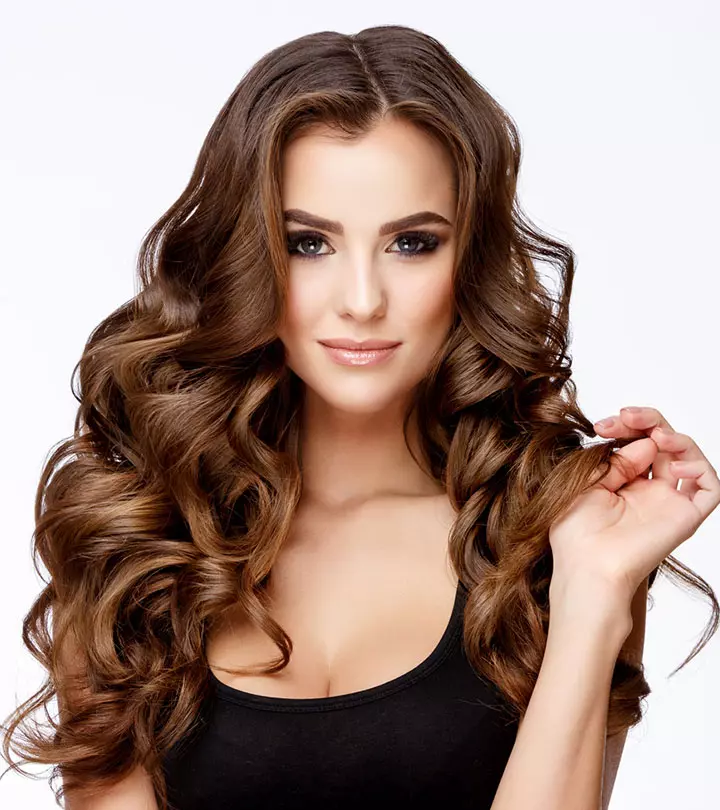
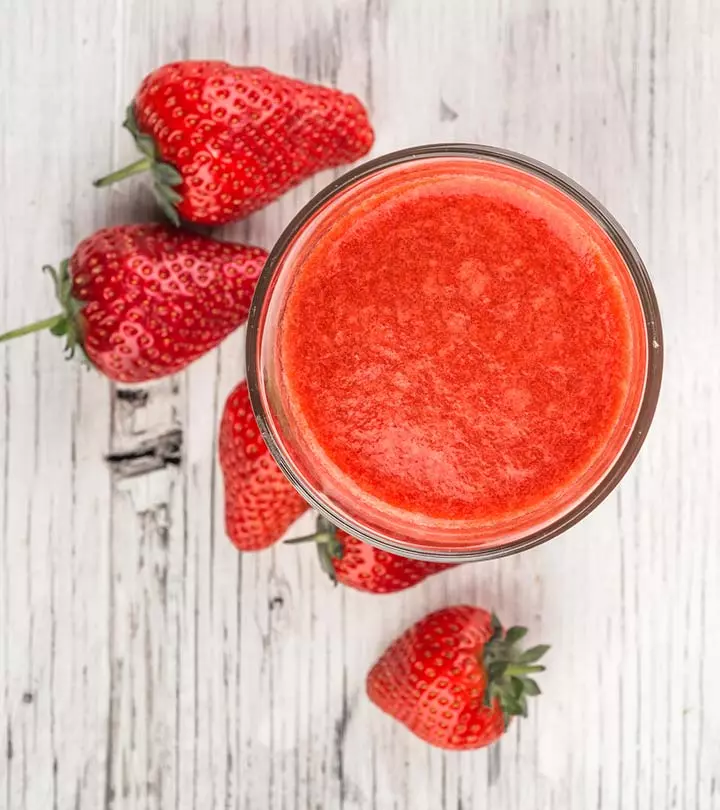

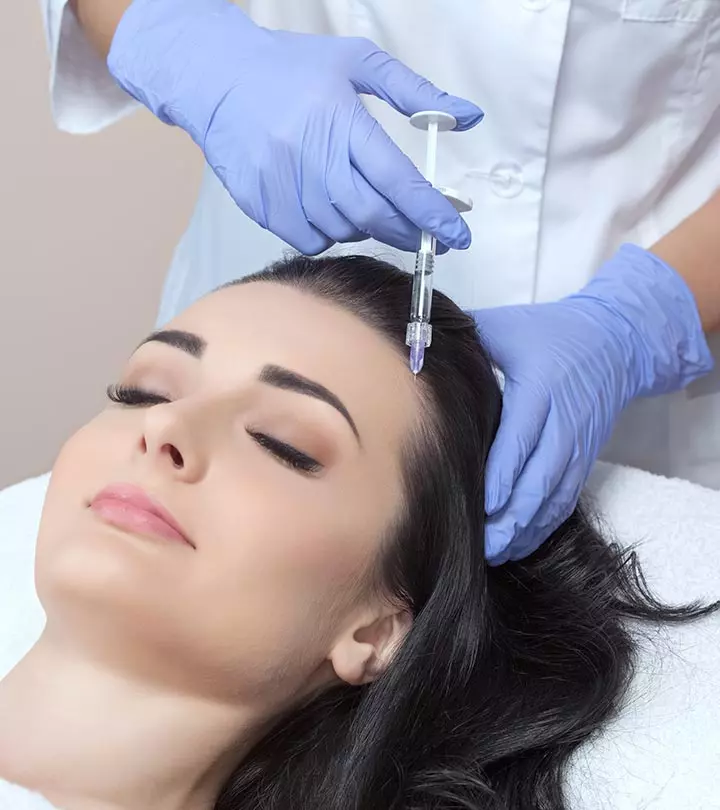
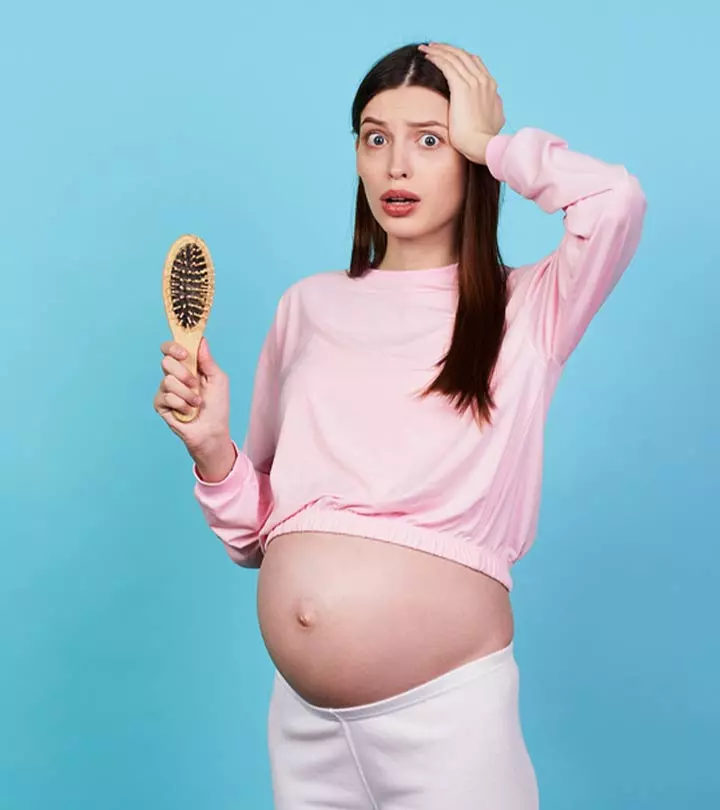
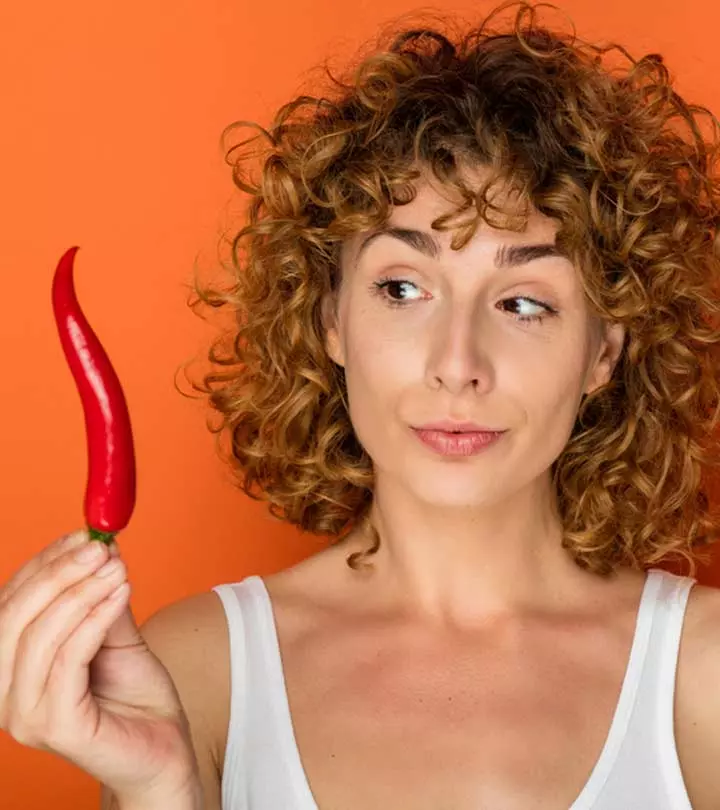
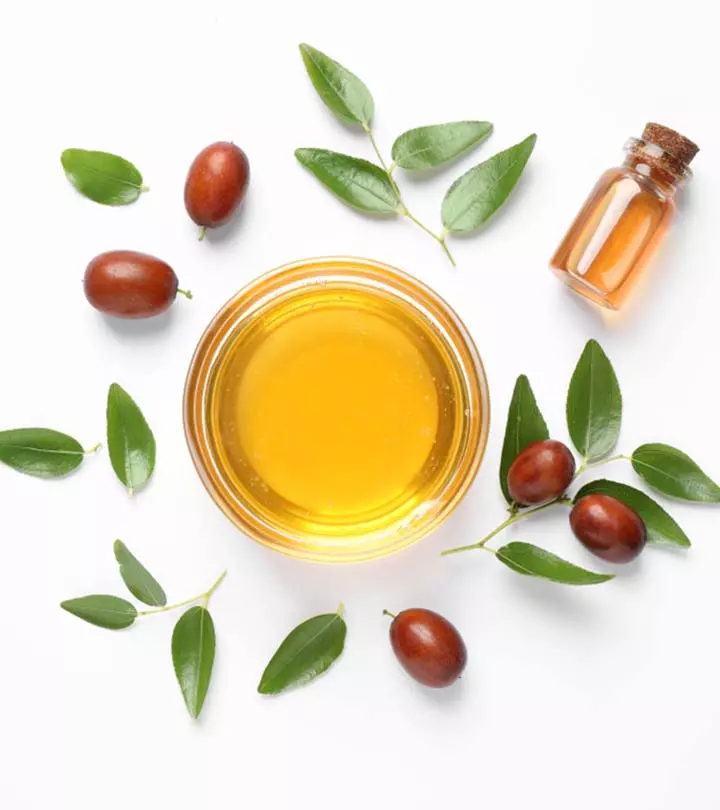
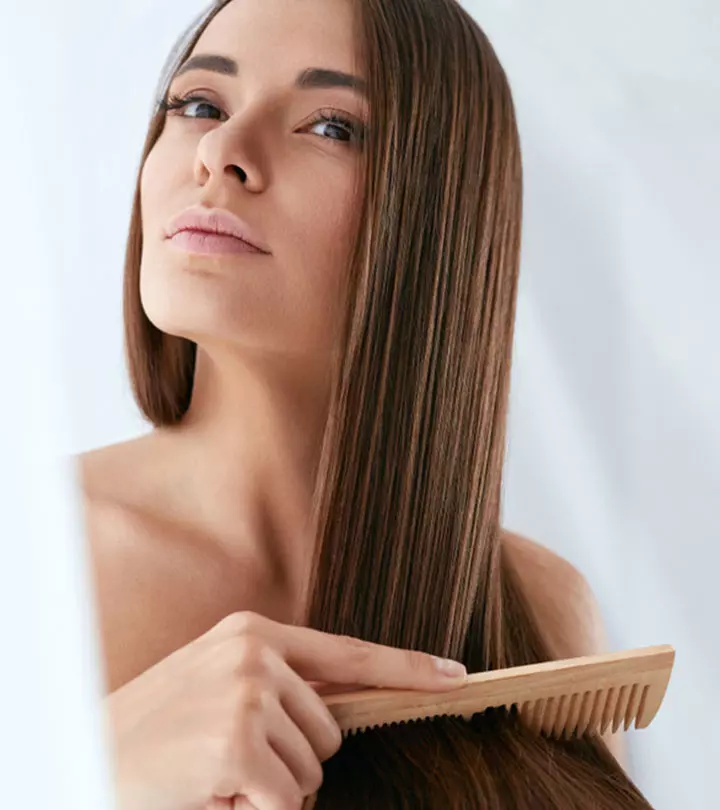

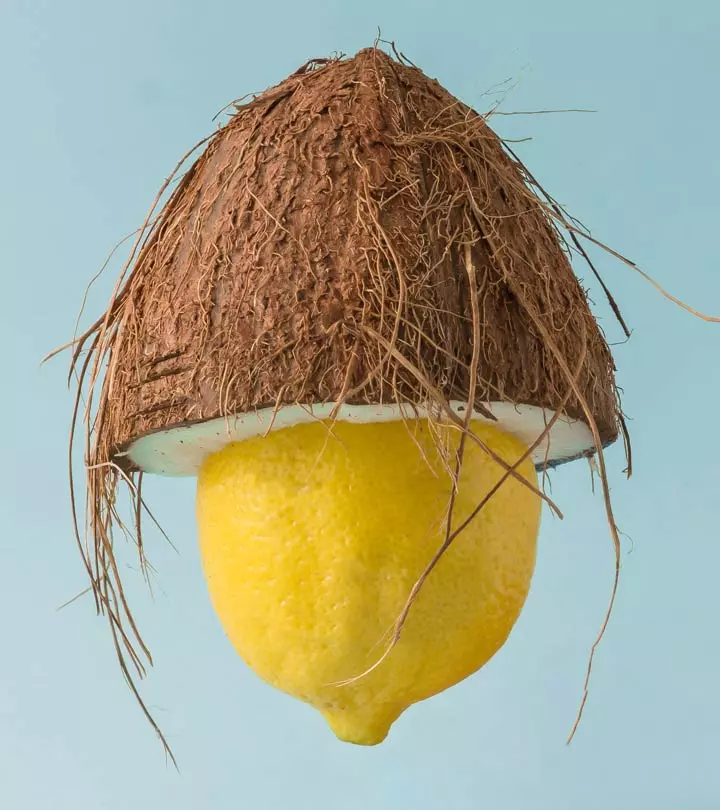
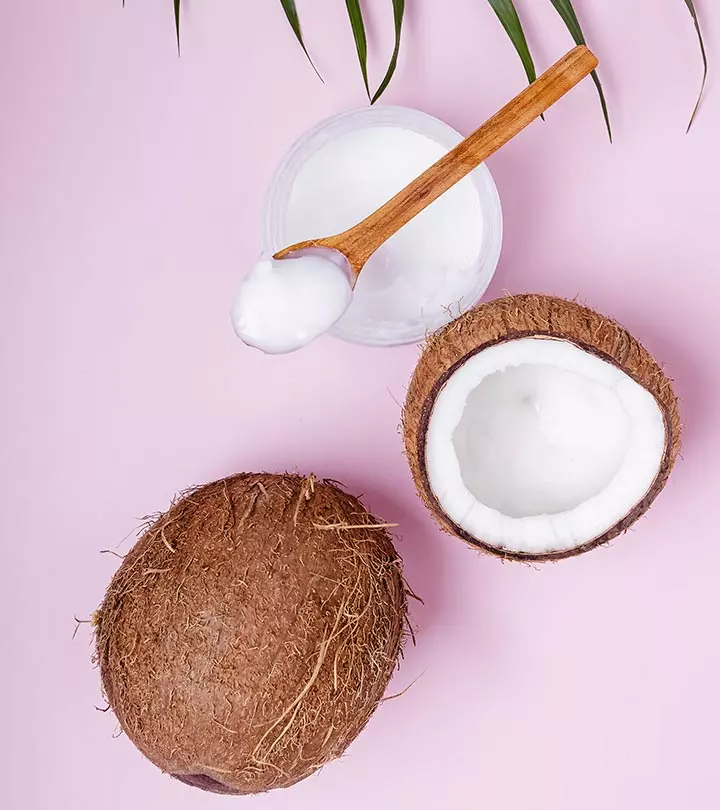
Community Experiences
Join the conversation and become a part of our empowering community! Share your stories, experiences, and insights to connect with other beauty, lifestyle, and health enthusiasts.